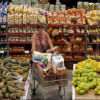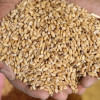No relief from high food prices in 2018

Inflation is likely to edge upwards in 2018 upon food price rises, according to economists, in a projection that is bound to cast a gloom upon the low-income families.
"The economy has been overheating with actual growth exceeding the potential growth rate," said Zahid Hussain, lead economist of the World Bank's Dhaka office.
This has been compounded by supply shocks due to recurring floods, increase in import prices and exchange rate depreciation of late.
"Consequently, given an expansionary fiscal policy, inflation can be expected to rise in 2018 as global commodity prices pick-up further."
The prediction comes at a time when inflation is on the rise: it rose to 6 percent in October this year from 5 percent in December 2016, driven mostly by food price spiral.
Inflation needs to be brought down to 5 percent or less to make the lives of the low-income group bearable and to keep the economy competitive internationally, he said.
Subsequently, with the view to preventing fuelling excess demand in the economy, Hussain advised the central bank to continue with the cautionary monetary policy it had announced in July for the rest of the fiscal year.
Some 5.2 lakh people have fallen into poverty due to the rise in the price of the staple rice this year, according to Selim Raihan, professor of the Dhaka University's department of economics.
The retail price of a kilogram of coarse rice, which was Tk 35.84 in January this year, hit Tk 47.78 in September for crop damage from recurrent floods and depleted public stocks, according to the Food and Agriculture Organisation.
Rice production will decline in Bangladesh in fiscal 2017-18, he said citing estimates from FAO and the US Department of Agriculture.
"My estimates using economic models show that there is likely to be a rise in headcount poverty rate by 0.32 percentage points due to the rice price rise this year," said Raihan, also the executive director of South Asian Network on Economic Modelling.
Subsequently, he called for forming a 'Rice Policy' with respect to production, import, supply management and strategic agreements with the rice exporting countries.
Apart from inflation, the possible revival of political unrest in the run-up to the national election at the beginning of 2019, the deepening of the Rohingya crisis and further weakening of corporate governance in the banking sector pose risks to the economy in 2018, Hussain said.
On the bright side, remittance inflow, the main source of foreign currency for the country, may rise in the new year.
With the recovery in international oil prices, the Gulf Cooperation Council economies, where the majority of the Bangladeshi migrant workers reside, are recovering.
"Thus the earnings prospect of Bangladeshis working there is increasing. Remittances from the US and the UK have also shown signs of strong recovery," Hussain said.
In another development this year, the pace of poverty reduction and job creation slowed down.
The rate of poverty declined from 31.5 percent in 2010 to 23.4 percent in fiscal 2016-17, according to Hussain.
"However, the pace of poverty reduction has slowed and income inequality has increased, particularly in rural areas."
The development is not entirely unexpected as the challenge of poverty reduction generally tends to get tougher the more poverty is reduced, the WB economist said. "It is a wakeup call against complacence."
The lives of the general public in Bangladesh are affected on the economic front critically by the availability of jobs and the trends in consumer prices.
"All indications are that job creation has slowed significantly in recent years," Hussain added.
In another promising development, exports rebounded in the second half of the outgoing year, reflecting the Western buyers' renewed confidence in Bangladesh's ability to deliver.
The depreciation of the Bangladesh taka against the euro and the US dollar also helped in the recovery, economists said.
Agriculture was the hardly hit sector in 2017 for repeated floods and unseasonal rains. The crops most affected were Aus, Aman, Aman seedbed, seedling, jute, and vegetables.
The flood, which affected 34 of the 64 administrative districts of Bangladesh, imposed economic hardship on millions of farmers and households.
"Even though rice prices were relatively high throughout the year, most of it is likely to have been appropriated by the middlemen rather than the farmers," Hussain said.
Both the economists also expressed concerns about the performance of the banking sector.
"We are highly concerned about the rise in scams in the banking sector and the non-performing loans. These are reflections of weak regulation, political patronage and a lack of vision," Raihan said.
The Banking Companies (Amendment) Act-2017 that has allowed four family members on a bank's board for nine consecutive years will increase the sector's fragility even more.
"There is a need for a political will, proper regulation, empowering the Bangladesh Bank and speedy trial of financial crimes," Raihan added.
Hussain said the banking sector is ailing badly and moved in the wrong direction in 2017.
He cited the BB's Financial Stability Report 2016 that was released in July this year to further his point.
The report revealed that when exposed to various credit shocks, 23 out of 49 banks would become undercapitalised mainly due to defaults by large borrowers.
"This was a clear and intellectually honest official admission of the true gravity of Bangladesh's banking sector."
A whopping 10.7 percent of the banking sector's total outstanding loans are reportedly in the default zone, Hussain said.
"But the figure would increase very significantly once restructured, rescheduled loans and write-offs are factored in."
Bailouts of banks using taxpayers' money continued this year in spite of the fact that bailouts have time and again proven to be ineffective, Hussain said.
"The authority's lack of readiness to seriously recognise and address root causes behind the banking sector is most worrisome," he added.

 For all latest news, follow The Daily Star's Google News channel.
For all latest news, follow The Daily Star's Google News channel. 








Comments